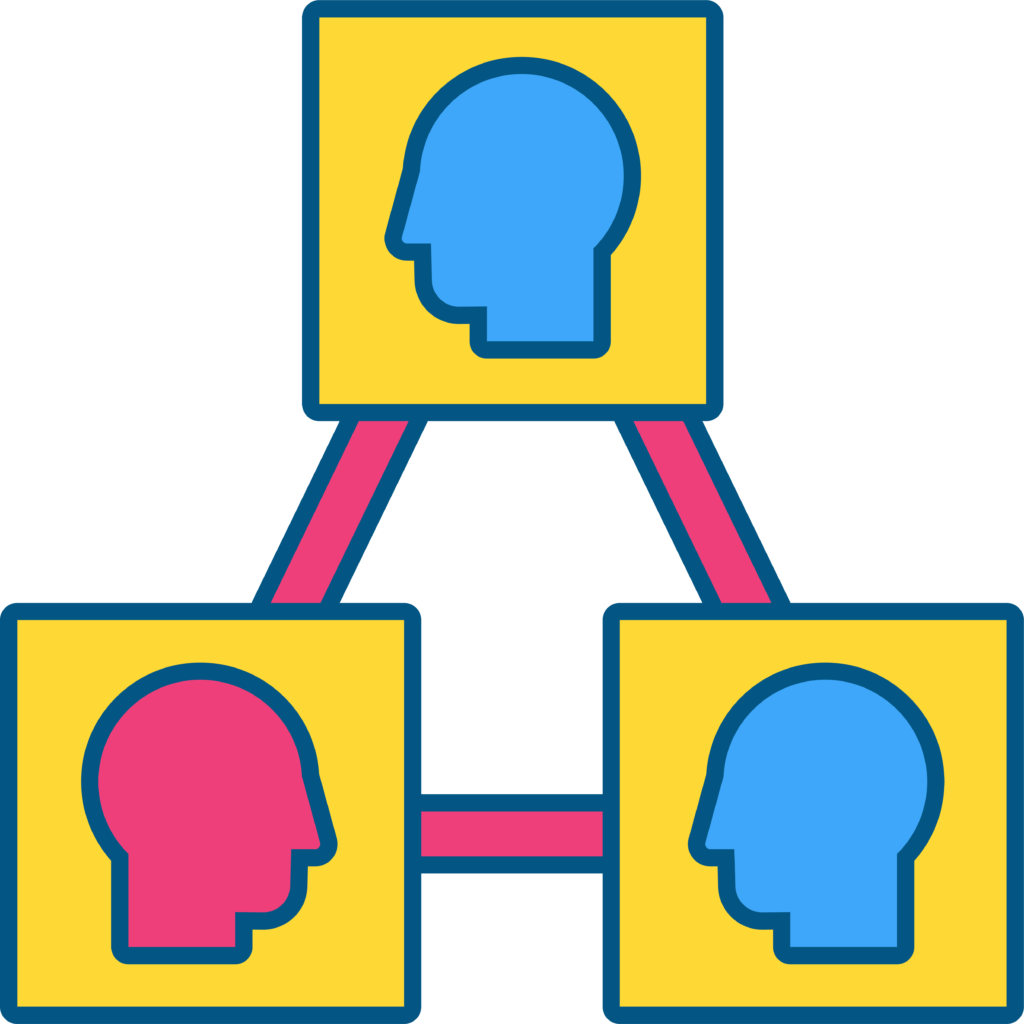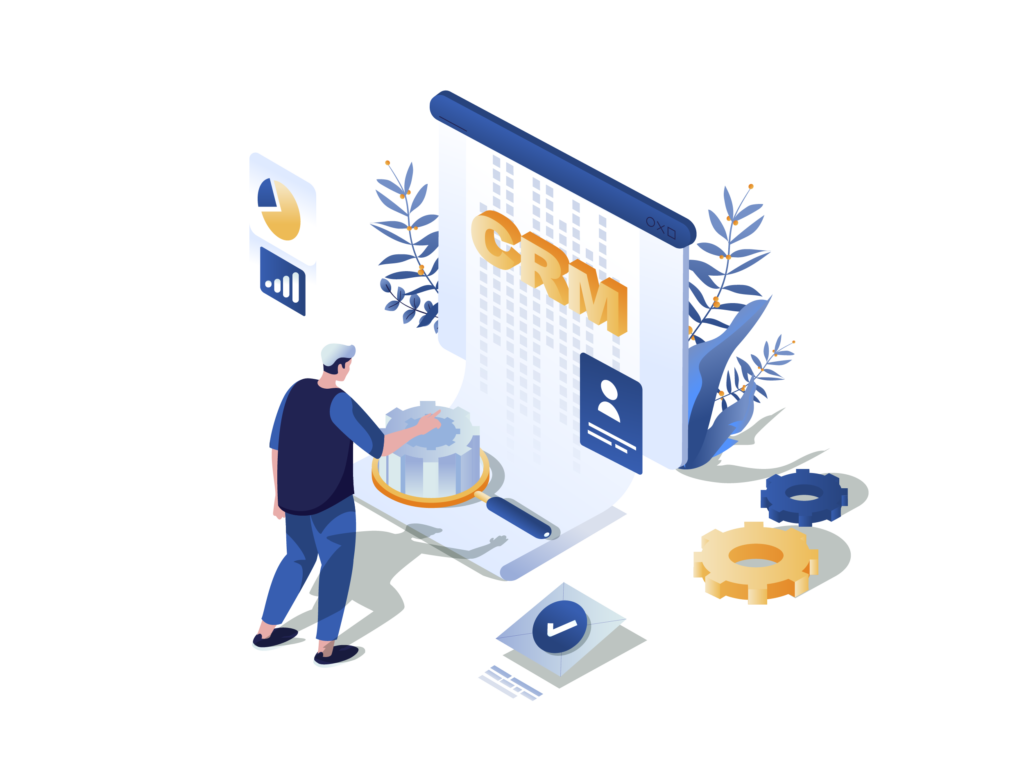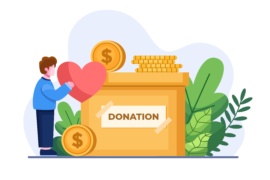While philanthropic pursuits are undoubtedly noble, effective charity is no easy feat. For grassroots nonprofits with constrained capital and crew, fundraising proves a formidable feat. Their lofty aims of aiding others must be delicately balanced with financial prudence. To impact change on a shoestring, efficiency and economy are paramount. It is here specialized technology shines, streamlining interactions through a centralized customer database.
Small nonprofits walk a tightrope few large leagues ladder. Their restricted reserves and roster render each dollar and devotion dear. Demands to deliver dreams battle bounds of the budget. Succeeding in such straits sees savvy utilization of each asset. A customer relationship management system offers opportune organization, optimizing engagements from intake to impact.
What is CRM in Fundraising?
CRM, or Customer Relationship Management, is a multifaceted methodology for handling an organization’s interactions and connections with its constituents, with a principal focus on benefactors in the case of non-governmental organizations. Fundamentally, CRM is a combination of advances, procedures, and strategies intended to comprehend, engage, and keep benefactors. It’s not really a product answer; it’s an exhaustive system that includes everything from information administration to correspondence procedures.
Role of CRM in Sustaining Benefactor Relations:
In the realm of fundraising, keeping up solid benefactor connections is paramount. CRM frameworks fill a basic need in accomplishing this. They empower non-benefits to catch and store crucial data about benefactors, their inclinations, and their past communications with the association. This information can be utilized to make individualized and focused on correspondence, ensuring that benefactors feel esteemed and acknowledged. Basically, CRM assists non-benefits with moving past operational connections to assemble enduring, significant connections with their supporters.
Relevance of CRM for Little Nonprofits:
One may question whether CRM frameworks are relevant or even achievable for little non-benefits with constrained spending plans. The truth is, CRM isn’t selective to substantial associations with critical budgetary assets. Really, for little non-benefits, the requirement for productive benefactor administration and viable fundraising is regularly even more articulated. CRM can be a cost-proficient arrangement that encourages these associations stretch their assets further, expand benefactor association, and at last raise more assets for their causes.
Understanding the Need for CRM in Small Nonprofits
Small nonprofits, despite restricted means, can reap major advantages from putting into practice CRM options. The prime mover is proficiency. For diminutive charities, moments and assets are valuable commodities. A nicely executed CRM mechanism can streamline numerous processes, letting the body to work smarter, not harder. It simplifies benefactor administration, automates repetitive errands, and gives important understandings into benefactor behaviours. This upgraded proficiency translates into spared moments and assets, which can be recontributed into the charity’s central mission.
Challenges They Face in Financing and Benefactor Direction:
Tiny charities encounter one of a kind difficulties in the realm of financing and benefactor administration. These associations generally have littler benefactor pools, making each benefactor relationship key. They likewise work with confined spending plans, making it fundamental to maximize the arrival on each financing effort. The test lies in overseeing benefactor information successfully, conveying customized correspondences, and guaranteeing benefactor preservation, all while working inside budgetary limitations.
A rightly actualized CRM framework has the potential to be a game-changer for diminutive charities. It offers the chance to fortify connections with existing benefactors and include new advocates. By focusing benefactor information, CRM frameworks give a 360-degree see of benefactors, permitting philanthropies to modify their advancement and financing efforts all the more productively. Along these lines, can bring about expanded benefactor maintenance rates, higher commitments, and upgraded overall financing execution. Small charities can likewise advantage from having the capacity to screen and measure the effect of their crusades, permitting them to settle on information driven choices to tweak their financing procedures.

Types of Affordable Fundraising CRM Solutions
Small nonprofits have an array of CRM choices to pick from, each catered to their exact needs and spending limitations. These alternatives comprise cloud-founded CRM structures, accessible solutions, and cheap software plans. Cloud-founded CRM structures, for precedent, are held online, doing away with the need for extensive inside IT infrastructure and providing extensibility as the nonprofit grows. Accessible CRM software, then again, furnish cost-efficacious replacements, now and then with a supportive people that can assist with execution and accommodation. Additionally, umpteen software dealers offer nonprofit-precise pricing and reductions to build CRM solutions more accessible.
Cloud-Based CRM:
Cloud-founded CRM solutions, regularly referred to as Software as a Service (SaaS) CRM, are increasingly well-liked among diminutive nonprofits owing to their affordability and extensibility. These solutions are stowed away in the cloud, which implies that nonprofits don’t call for to spend in costly servers or IT infrastructure. They can get at their CRM from anyplace with an internet association, construction it handy for distant work and collaboration. Cloud-founded CRMs are subscribing-established, permitting organizations to pay lone for the features and ability they demand, construction them cost-efficacious for diminutive nonprofits.
Accessible Resource Management:
Accessible resource management software offers a cost-effective another for diminutive nonprofits. These CRM solutions are built on accessible platforms and can be personalized to meet the organization’s precise demands. Patch they may necessitate some technical expertise for setup and preservation, they offer a high grade of flexibility and cost savings, as there are no licensing fees. Nonprofits can get at a supportive community of developers and users, construction it easier to find assist and resources.
Affordable Software Packages:
umpteen CRM software dealers acknowledge the financial limitations faced by diminutive nonprofits and offer tailored pricing packages. These packages regularly include features such as donor management, email marketing, and reporting, which are essential for fundraising efforts. Small nonprofits can find software options that furnish the core functionality they need without overburdening their budgets. This allows them to get at the benefits of CRM structures lacking compromising their financial solidness.
Key Features to Look for in Affordable CRM Systems
When seeking an affordable CRM solution for small nonprofits, it’s crucial to focus on features that directly impact fundraising and donor management. These include donor management, email marketing, and reporting capabilities.
Donor Management: An effective CRM requires a robust system for centralized donor information. It allows tracking interactions and segmenting donors in myriad ways. This comprehensive view of supporters ensures personalized outreach.
Email Marketing: Tools within the system enable targeted email campaigns vital for donor engagement. Communicating updates and promoting initiatives is effortless through email marketing.
Reporting: Insights into performance come from reporting features. They permit tracking donations, campaign success, and engagement metrics. Only with such data-driven decisions can strategies continually evolve.
How These Features Advance Fundraising:
Donor Management: Streamlining donor data access simplifies storing and retrieving information. Tailoring communications acknowledges support while fostering trust and loyalty through a personalized approach. This secures donor retention and lifetime value.
Email Marketing: Reaching donors directly with compelling messages and calls to action is made possible through email tools. Segmenting lists based on preferences keeps messages relevant, amplifying the potential for donations and involvement.
Reporting: A clear picture of fundraising results arises from robust reporting. Determining effective campaigns and engaged audiences allows adjusting strategies and focusing limited resources. This arms organizations to optimize initiatives and deliver best outcomes.
-
Cost-Effective Implementation Strategies
Implementing a CRM system doesn’t have to be a budget-breaking endeavor for small nonprofits. Consider these strategies to keep costs in check while achieving your goals in a practical manner:
Begin by thoroughly examining your organization’s precise aims and objectives. Establishing a nuanced comprehension of what exactly you seek to accomplish with the CRM will empower you to pick features judiciously rather than indiscriminately.
Free or open-source CRM solutions can offer robust capacities at no cost. Survey these options depthly to ascertain whether any could ably meet your needs without fiscal strain.
Numerous CRM vendors generously reduce pricing or craft special packages for nonprofits aiming to better serve communities compassionately. It merits investigating providers established in supporting such missions affordably.
Setting well-defined aims is pivotal to ensuring your CRM implementation appropriately addresses your organization’s needs. Goals could involve heightening donor retention rates, cultivating a broader donor base more efficiently, or optimizing campaign performance impactfully. With objectives clarified thoroughly, informed judgments become possible regarding prioritizing features and conscientiously measuring advances.
Small nonprofits can benefit from volunteers or pro bono assistance when implementing a CRM system. Volunteers with technical acumen can help with system configuration and customization diligently. Additionally, some CRM providers may offer pro bono services to nonprofits seeking assistance resourcefully. Explore these possibilities and contact your contacts or local tech organizations to find willing volunteers or professionals able to provide their expertise freely.
By adopting a strategic approach to CRM implementation, small nonprofits can harness the power of these systems without exceeding budgets, ultimately enhancing fundraising efforts and donor management proficiently.

-
Integrating CRM with Fundraising Strategies
Integrating customer relationship management systems into fundraising strategies is a strategic decision that can yield considerable rewards, especially for smaller nonprofits. Here are some effective tactics:
Centralize all donor particulars within the CRM. This involves collecting and structuring data on contributions, interactions, interests, and preferences to develop a complete picture of supporters. A unified database enables comprehensive views of each person.
Categorize donors using stored information. Factors like involvement history, values, and commitment levels allow segmentation into groups tailored for focused, compelling campaigns.
Personalize communications by leveraging user details. Messages resonating with individuals’ priorities and passions can significantly boost engagement and fundraising success.
How CRM Enhances Commitment, Retention, and Segmentation:
CRM allows maintaining meaningful long-term relationships through a holistic understanding of each user’s journey and touchpoints, enabling timely acknowledgments that foster trust, allegiance and community. This drives likelihood to continue assisting the cause.
Systems support precision retention initiatives like identifying at-risk users and automated follow-ups, improving retention rates which are often more cost-effective than acquiring newcomers.
Data permits targeted campaigns directly addressing specific user classes, such as first-timers, loyalists or volunteers. Not only does this increase relevance but response chances.
Guidelines for Building Targeted Campaigns using CRM Information:
Analyze past performance stored in the CRM to identify successful appeal types for various user groups, tailoring future campaigns accordingly.
Monitor engagement indicators like email engagement, clicks and event attendance to refine strategies and more effectively target segments over time.
Repeated testing and tracking results aids continuous refinement, ensuring the best approaches for the organization and audiences over the long term.
Data Security and Compliance
Donor privacy and information security are paramount in the nonprofit sector. Benefactors trust organizations with sensitive personal and financial details, so safeguarding that trust through robust confidentiality practices is imperative. Here are some reasons why data protection is so crucial:
Maintaining Donor Confidence: Robust security assists in developing and preserving benefactor assurance. When givers understand their details are sheltered, they are more inclined to continue assisting.
Legal Obligations: Several territories impose strict privacy legislations like the GDPR or CCPA. Nonprofits must abide to avoid penalties or fines for mishandling benefactor information.
Reputational Risks: Breaches or careless handling of giver details can seriously harm an organization’s image. Such incidents deter future benefactors and backers.
Know Applicable Regulations: Familiarize with regulations covering an organization. Comprehend collection, storage, and use necessities to ensure compliance.
Consent and Transparency: Verify proper consent for collecting and using benefactor details. Also, transparently disclose information uses through clear privacy policies.
Data Encryption and Access Controls: Encrypt sensitive benefactor information and authorize access solely to necessary personnel.
Affordable Security Options: Choose cost-effective CRM solutions providing robust protection. Many understand nonprofits’ needs and offer security features reasonably.
Regular Backups: Implement consistent backups to shelter benefactor information in system failures or data loss events.
Staff Training: Invest in educating employees on best security practices. Informed staff are the first line of defense against breaches.
Periodic Audits: Occasionally assess and improve measures through audits or IT assistance to maintain security standards.
By integrating donor management and fundraising while prioritizing privacy using affordable options like CRM, small nonprofits can efficiently handle benefactor information, enhance engagement, and safeguard trust and details within constraints.
Training and Support for Small Nonprofits
Implementing a CRM system for a small nonprofit often comes with a learning curve but it can be a transformative step. Here are some key reasons why proper training and support are so crucial:
Ensuring peak efficiency is maximized, training allows a team to fully utilize all available features within the CRM. When staff are well versed in the system, duplication of efforts is avoided and workflows are streamlined.
Avoiding mistakes that compromise important data or donor relationships starts with an educated team. With guidance, simple errors that cause issues are less likely to occur.
Adapting to change is challenging but training expedites the process. As staff learn intricacies of the new system, unease around transitions dissipates and productivity rebounds.
Do not hesitate to utilize assistance from vendors, especially for budget-conscious nonprofits. Many are committed to client success. The following approaches can provide guidance:
First contact customer support – they typically handle common queries and issues. Understand support plan details.
Inquire about any nonprofit programs covering discounted pricing or pro bono services. Special offers exist.
Schedule consultations to review organization specifics and needs. Tailored solutions or feature suggestions result.
Measuring ROI and Success
Assessing the return on investment for your customer relationship management platform is essential to determine its impact on nonprofit fundraising efforts. To complete this evaluation, follow these steps:
First, calculate expenses tied to acquiring, implementing, and sustaining the CRM system. Include costs like licensing fees, employee training, setup configuration, and continuing technical assistance.
Next, quantify the advantages, such as increased donations, maintaining donor loyalty, and process improvements. Employ key performance metrics and CRM data to precisely value these gains.
Then, use this formula to compute ROI: (Net Benefits / Expenses) x 100. A positive percentage signifies a favorable ROI while a negative ratio means an unfavorable ROI.
Critical performance markers (KPIs) for monitoring achievement:
Key performance indicators are indispensable metrics that facilitate measuring the success of your CRM rollout. Some applicable KPIs for nonprofits include:
Donor retention percentage: Gauge the portion of donors who continue backing your organization over time. Generally, a higher preservation rate demonstrates your CRM system is nurturing stronger donor relationships.
Donor lifetime worth: Assess the total valuation of a donor’s contributions to your nonprofit throughout their involvement with your group. CRM information assists tracking and examining this metric.
Conversion rates: Monitor the conversion percentages of various campaigns like email marketing, event registration, or social media participation. This information helps understand which efforts perform most effectively.
For making information-driven choices:
Data-driven decisions are essential for optimizing fundraising initiatives. Here is how to include data in your decision making process:
Dissect patterns: Leverage your CRM data to identify trends and habits in donor behavior. For instance, analyze which campaigns or communication avenues yield best outcomes and customize your strategies accordingly.
A/B testing: Implement A/B testing in your campaigns to experiment with different approaches and gauge which generate enhanced results. CRM systems can facilitate tracking the success of these trials.
Regular reporting: Create regular reports from your CRM system to keep tabs on your fundraising efficiency. Inspect these reports to make informed choices and adjust strategies as needed.
-
-
Conclusion
Small nonprofits have demonstrated that meaningful change can arise from inexpensive customer relationship management solutions. This is a voyage worthwhile, and the avenue to success is paved via innovation, strengthened donor bonds, and a more effectual fundraising method. You have the choice to explore, deliberate, and make a profound difference in your nonprofit’s journey.
Do you represent a compact nonprofit hoping to amplify your fundraising attempts with minimal cost? We’ve toured the globe of CRM in fundraising, highlighting the remarkable advantages it can offer groups similar to yours.
Now is the time to take the next step. Consider capitalizing on Werbylo, the complimentary cloud-founded fundraising software fashioned with small nonprofits in mind.
Your voyage to more effectual fundraising initiates with a basic click. Experiment with Werbylo free of charge now and witness the transition it can create for your compact nonprofit. Empower your mission, involve your supporters, and observe your fundraising efforts blossom. Don’t delay; take movement at this time and see the impact of affordable and accessible CRM with Werbylo.
-




